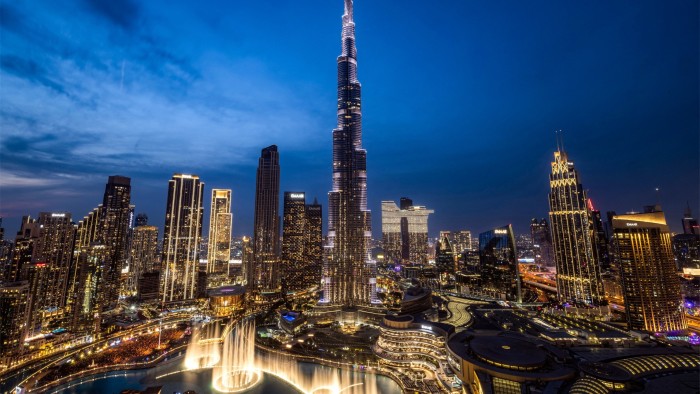
Unlock the Editor’s Digest for free
Roula Khalaf, Editor of the FT, selects her favourite stories in this weekly newsletter.
An increasing number of wealthy Chinese people are trying to set up family offices and secure residency in the Gulf, a reflection of growing frustration with the increased difficulty of establishing themselves in Singapore, long a popular destination for rich Asians.
In the past year, there has been a rise in enquiries from Chinese nationals eager to relocate to Dubai and Abu Dhabi, according to private bankers and advisers to the ultra rich. Setting up family offices can ease the process of securing citizenship or residency.
“They are attracted [to the Gulf] by the ability to get residency status and live and enjoy stability,” said Mike Tan, Standard Chartered’s Singapore-based global head of wealth planning and family advisory, of those enquiring about setting up family offices in the Gulf.
Tan said the number of enquiries about Dubai that Standard Chartered had received from east Asian clients had surged in the past year, though the bank declined to provide numbers.
The UAE golden visa, which offers residency for 10 years and is available to investors, some family members and some high skilled workers, “is very attractive, and it is stable and benign from a tax perspective,” he said. Authorities in the United Arab Emirates said they issued nearly 80,000 golden visas in 2022 in a sharp increase from 47,000 the previous year, the latest figures to be made publicly available.
The number of family-related entities in Dubai’s offshore financial centre hit 1,000 at the end of the first half of this year, according to official figures, compared with 800 at the end of last year and 600 at the end of 2023. There is no breakdown on origin, but advisers say that much of the rise can be attributed to Chinese individuals.
Such is the influx of wealthy customers to the Gulf, said Prashant Tandon, managing director of wealth manager Lighthouse Canton’s UAE business, that there is a shortage of financial professionals who speak Chinese.
Tandon said he had seen the greatest movement towards the United Arab Emirates among those with assets of $50mn-200mn — “the mid-segment” of high net worth individuals — who are “a lot more entrepreneurial” and may be feeling business pressures in mainland China or Hong Kong.
“A lot of families have sold Singaporean real estate to reinvest in the UAE,” said Yann Mrazek, managing partner at M/HQ, which assists with setting up structures for fund managers and family offices in Dubai and Abu Dhabi. Harsh Covid lockdowns in places such as China and Singapore had first triggered the interest in Gulf hubs, he said.
“Singapore has very restrictive immigration rules — they want to ensure the right people come in,” said an adviser to wealthy families in the city-state. “It is relatively easy to set up a family office and get employment passes, but much harder to get residency and citizenship.”
But while Dubai’s family office market is growing fast, it has years of catching up to do with Singapore.
Government incentives prompted many wealthy foreigners to consider setting up family offices in Singapore in recent years as part of a pathway to becoming permanent residents. The number of family offices in Singapore rose by 43 per cent last year to more than 2,000.
“For a while, people were setting up family offices as a status symbol in Singapore — if your friend had one, you should have one too,” said Kevin Teng, chief executive of wealth manager Wrise Private Singapore. “But it meant a lot of these entities weren’t doing very much.”
Singapore granted an average of 33,000 permanent residencies and 21,300 citizenships a year over the past five years, according to the Immigration & Checkpoints Authority, which does not disclose the number of applicants. Immigration consultants report the approval rate can be as low as 8.25 per cent.
A money-laundering case, believed to be the city state’s largest, involving individuals linked to a gang from China’s Fujian province prompted greater scrutiny of individuals and flows.
More crypto entrepreneurs from China are also looking to set up in the Middle East, said Teng. There are now 39 cryptocurrency companies fully licensed by VARA, Dubai’s special regulator for the sector.
“In the crypto and digital asset space, they [Chinese clients] are looking at how friendly the local regulators are,” said Teng. “A lot of the time it can be down to how much risk appetite the different jurisdictions have and Singapore is being a bit more risk averse, certainly compared to Dubai.”
The Monetary Authority of Singapore has granted 36 licences for digital payment companies, though it began cracking down on unlicensed crypto exchanges this summer. “Clients are increasingly going to the Middle East,” said Teng. “That is definitely a growing business segment for us.”


